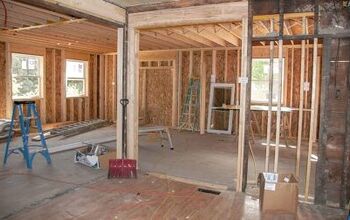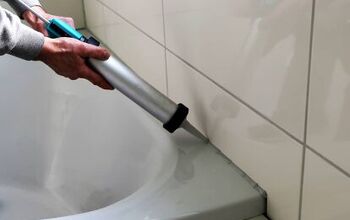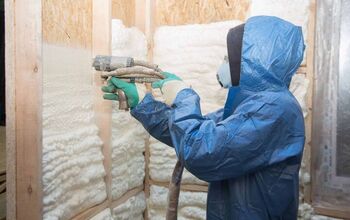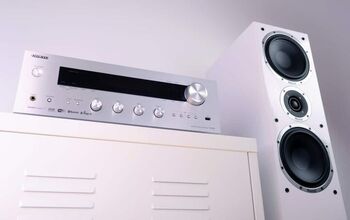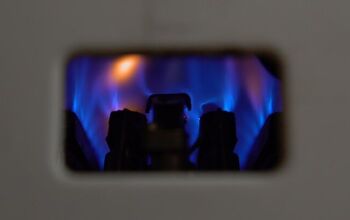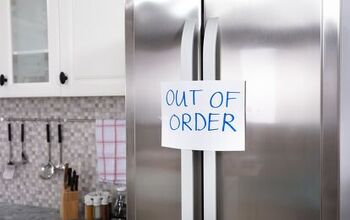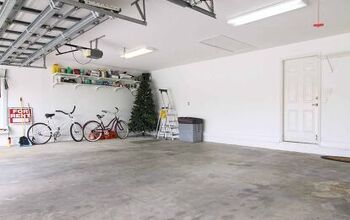What Happens If Water Gets In An Outlet?

Water in an electrical outlet poses a serious risk that should not be ignored. Electricity and water a not a good mix under any circumstances. An electrical outlet that gets wet routinely or sits in standing water is especially problematic. Even occasional exposure to moisture can cause problems that lead to much more serious problems.
Several things may happen if an electrical outlet is exposed to water. The water may cause a short circuit in the system resulting in a fire. An outlet sitting in standing water poses a shock hazard for anyone near the outlet. Long-term exposure to moisture can cause the contacts and connections on the outlet to corrode and eventually fail.
Exterior electrical outlets often get exposed to water when it rains, or you water your landscape. The effects of water on an electrical outlet may take time to cause problems, but eventually, the outlet will fail in some manner, often with catastrophic effects. The best method for preventing these incidents is to install the correct style of outlet enclosure and avoid putting electrical outlets where standing water may invade the outlet enclosure.
Code Requirements for Exterior Outlets
The National Electrical Code (NEC) contains explicit rules and requirements for exterior outlets on residential structures. In general, the NEC specifies that all residential structures, accessory buildings, garages, and other structures have one electrical outlet accessible at grade level.
When these exterior outlets are exposed to damp conditions or weather, the NEC specifies certain special installation requirements. In particular, exterior outlets subject to damp conditions, such as a covered porch or patio, must have a weather-resistant enclosure and a weather-proof cover that protects the outlet when nothing is plugged into the connection.
An exterior outlet exposed to the weather must be installed in a weather-resistant enclosure fitted with a weather-proof “in-use” cover that protects the connection while a cord is plugged into the outlet.
Some older homes do not have these features installed on the exterior outlets. Local codes may grandfather these older installations. We recommend any exterior outlet be brought up to the current code requirements for safety and health reasons.
GFCI Outlets Required as Well
In addition to the above requirements for exterior outlet installations, the NEC also requires that the outlet be protected by a GFCI outlet or be on a branch circuit protected by a GFCI breaker. GFCI protection at the outlet or on the branch circuit can help prevent injury if a short circuit does occur while using the outlet.
Many instances of homeowners being shocked when using electrically powered garden tools are common. Wet grass can become a conductor if the garden tool is faulty, or the extension cord is damaged. A GFCI in the circuit can prevent serious injuries if this situation occurs.
The Dangers of Water in an Electrical Outlet
Standard duplex electrical outlets like those found in most residential installations have no internal safety mechanisms to safeguard you or the electrical system if water gets into the outlet. You can identify a standard 15-amp electrical outlet by the two parallel slots with a round or d-shaped hole between and below them.
The Corrosion Problem
If water gets into these electrical outlets, several parts of the outlet can be susceptible to damage or failure. The contacts inside the outlet may corrode and prevent a good electrical connection when an appliance is plugged into the socket. This can prevent the appliance from working or from performing as it should.
Corrosion may also affect the connections between the outlet and the electrical wiring in the enclosure. I have seen these screw connectors corrode so badly that they break off. The electrical outlet becomes unusable, but the electrical circuit is usually still hot. This can lead to a shock or short circuit hazard.
The Fire Hazard
Under some circumstances, a short circuit can occur when water is introduced into an electrical outlet. Wires and connections may corrode, or minerals in the water may bridge a connection that can be a potential fire hazard in your home. Electrical issues are one of the largest causes of fires in residential structures.
Shock and Electrocution Hazards
Worst of all, water in an electrical outlet can lead to electric shocks or even electrocution. Water can create a path to you from the electrical connection, especially if you are in a damp area with wet floors or damp dirt. You should be wary of any electrical outlet in a damp or wet area that is not protected by a GFCI system at the outlet or the breaker box.
Are Only Outside Electrical Outlets subject to Water Damage
Not at all. Even indoor electrical outlets can get wet under some circumstances. Outside electrical outlets are typically more subject to getting wet because of rain, soil moisture, or watering. However, electrical outlets indoors can be damaged by water as well.
Spills and Splashes
Spilled water and splashed water are a hazard around sinks and bathroom fixtures. The NEC specifies that a GFCI outlet or breaker should protect all electrical outlets in these areas. However, kitchen, bathroom, and laundry room outlets don’t have this type of protection in many older homes.
Water Leaks
A water leak in your home can potentially lead to not just water damage. Water leaking in walls or under flooring can find its way into places, including electrical outlets. Anytime you experience a water leak that leads to substantial water damage, you should suspect that damage to electrical outlets, switches, and other electrical fixtures may occur. A thorough check by a qualified electrician is in order when these situations occur.
A water leak doesn’t necessarily have to occur because of a plumbing problem. Many older homes may experience water leaks around windows during heavy rain. A damaged roof can also allow water to enter and potentially cause great damage.
Flooding
Rising water can be another means of damage to your electrical system. Floodwaters invade everything and can leave your home in shambles and the electrical system a potentially dangerous part of your home. If your home has experienced flooding, part of the remediation of the flood damage should include a complete electrical inspection to ensure the circuits are safe before power is restored.
What Needs to Be Done to a Wet Electrical Outlet?
Water, of any sort or amount, in an electrical outlet, can be a serious problem. If you find an outlet in your home that has been wet, you should immediately take action to keep your home and your family safe. We suggest you do the following immediately.
Turn Off the Circuit Breaker
Find the circuit breaker in your service panel box that provides power to the branch circuit where the wet outlet exists. Turning off this circuit breaker will stop the flow of electricity to the wet outlet preventing any possible short circuit hazard, electrical shock, or fire.
Find and Stop the Source of the Water
You must locate the water source that is getting into the electrical outlet. This may be a leaking water pipe, a roof leak, or naturally occurring moisture such as rain. Before attempting to fix the outlet and restore power, you must be sure that it will not get wet again.
If the outlet is on the exterior of your home and the source of water is environmental, or from watering your landscape, there are different options. Of course, you can’t stop the rain, and the landscape must be watered. In these situations, an electrician can help you by installing new outlet enclosures with the right covers to prevent water from affecting the electrical outlet.
Repair the Damaged Electrical Outlet
In most instances, an electrical outlet exposed to a small splash or spill needs to be air-dried before being put back into service. If the exposure has been chronic over a long period, the outlet may need replacing. In some worst-case scenarios, the wiring may need to be repaired or trimmed back to make a good connection.
Consulting with a licensed electrician may be a good choice under the more extreme circumstances to ensure that the electrical system is safe and operating properly.
Don’t Neglect Potential Problems
In any case, an electrical outlet that gets wet needs immediate attention to keep you, your home, and your family safe. Don’t ignore the possibility that water in an electrical outlet can be dangerous or even deadly. Water and electricity rarely mix well.

Nick Durante is a professional writer with a primary focus on home improvement. When he is not writing about home improvement or taking on projects around the house, he likes to read and create art. He is always looking towards the newest trends in home improvement.
More by Nick Durante










